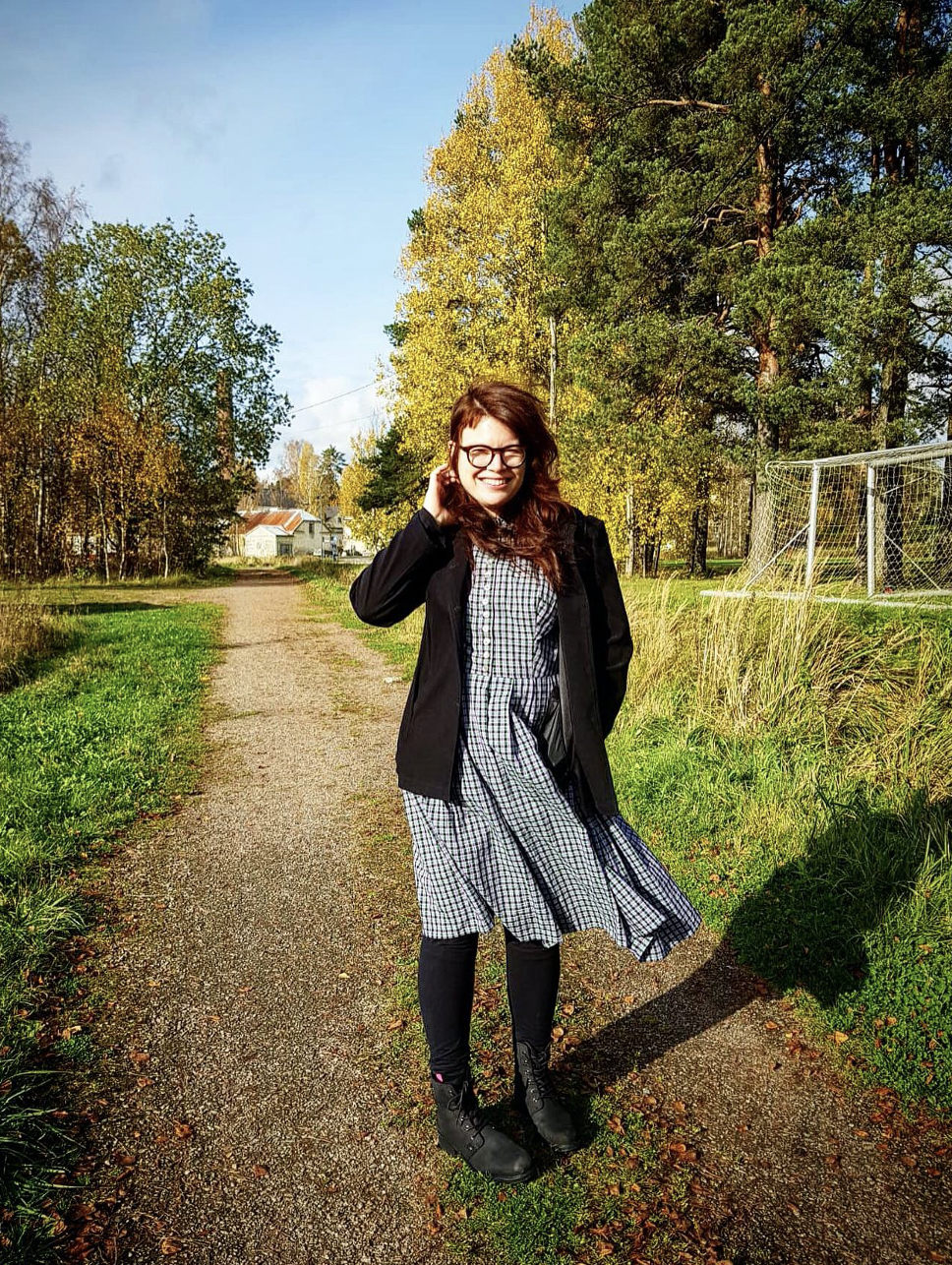Experience PhD Student Profile: Einat Amir
Einat Amir synthesizes video installations and live performances with scientific experiments in social psychology and neuroscience. Currently, she works as a doctoral researcher at both the Department of Art and the Department of Neuroscience and Biomedical Engineering. Believing Empathy is Unlimited, a review of her collaborative work with Dr. Yossi Hasson, was presented in Berlin Science Week at the beginning of November. Amir’s artistic works make her audience to face the limits of their empathy.
 Einat Amir. Photo: Jarna Ahola
Einat Amir. Photo: Jarna Ahola
Working with psychologists and neuroscientists, Einat Amir’s research combines artistic practice-led research, quantitative social psychological research. Her projects take a form of theatre performances or video installations, based on self-reports and observations, analysis of artistic components and fMRI data. “My research is focusing on creating hybrids of performance art, social psychology experiments and neuroscience. How these fields could contribute to society? How could they decrease dehumanization and increase intergroup empathy?”, Amir asks.
BRIDGING THE ARTISTIC PRACTICE AND RESEARCH ON INTERGROUP PSYCHOLOGY
Amir’s background includes years of investigating human interactions through performance artworks. She became inspired in entwining research into the artistic practice as she came across social psychology literature in the field of emotions in the context of intergroup conflicts. Some of the experiments used manipulations that fell close to the way she was thinking about changing the participant’s emotional state during her performances. “I find the field of participatory performance in contemporary art and the field of the social psychology of emotions in intergroup relations and conflict as the two fields that share many interests.”
Amir decided to join Eran Halperin’s The Psychology of Intergroup Conflict and Reconciliation lab (PICR) at The Hebrew University in Jerusalem. PICR specializes in the psychological processes underlying the dynamics of intergroup conflict. In this context, she started working with her collaborator Dr. Yossi Hasson, whose focus on intergroup empathy was in proximity to my artistic interest. Later her interdisciplinary art and psychological work caught the attention of professor Mikko Sams, who also sits in an Experience Platform board. He invited Amir to join Aalto’s Brain and Mind Lab where interdisciplinarity and creativity are part of everyday research.

Picture above from Basic Assumption (performance and experiment), Mekudeshet Festival, 2017 by Einat Amir and Yossi Hasson. Photo: Michal Fatael.
WHAT IF EMPATHY IS UNLIMITED?
Believing Empathy is Unlimited was the title of Amir’s and Hasson’s presentation at the Berlin Science Week. “It is the title of paper* we have recently submitted for publication”, Amir explains, “we presented two hybrids of social psychology experiments and participatory performance art that we created in art venues with hundreds of participants”. First of them examines the empathy level of Jewish Israelis towards Palestinians, and the other investigates the empathy level of American citizens towards Syrian refugees. In both cases, the experiments had successfully raised the empathy levels of the participants towards their outgroup. The key for this result was in experimenters introducing an idea for the participants about empathy being unlimited resource that one can potentially experience just as well towards ingroup and outgroup members. These results are promising steps that might help to conciliate conflicts between people who identify themselves as belonging to separate groups.
EMPATHY – BEST SERVED FACE TO FACE
Amir’s first year at Aalto has been much about making new connections and networking: “It has been a year of exploration – what does it mean to work interdisciplinarily both in two departments, the Department of Art & Department of Neuroscience and Biomedical Engineering? How do I do interdisciplinary research that is acceptable in both departments?” Amir says that the Covid19 -pandemic has been a shock and disrupted her settling in for the society: “As a foreigner in Finland it has been a bit of a struggle to lose the daily contact with co-workers and friends. It has taken some time to find ways not to feel isolated. Now I am quite enjoying working from home, but it has been a process.”
Amir is grateful for many “amazing online creations of performances” that have been responding to the need for social distancing but since her work revolves around participatory performance, it requires face-to-face meetings and interactions. Amir says she is ready for making a compromise for a while, but not forever. “Art is best experienced in art venues and that there is no replacement for a live experience of performance”, Amir states and concludes that “I still believe that empathy’s best habitat is a face to face meeting”.
*Hasson, Y., Amir, E., Sobol-Sarag, D., Tamir, M., & Halperin, E. (2020). Believing empathy is unlimited: Using performance art to reconstruct intergroup empathy and bring people together. Paper under review.
The Finnish Academy’s Profi4 -funding has enabled Aalto to profile in multidisciplinary experience research. With this funding, six interdisciplinary doctoral students strive to create new scientific knowledge about human experiences. The topics touch the psychological and brain mechanisms of experiences, shaping experiences via art, design and architecture, and the organizational, managerial, and emotional aspects of experiences.
x Eero Tiainen
Aalto Experience Platform

This post doesn't have any comment. Be the first one!
Comments are closed.